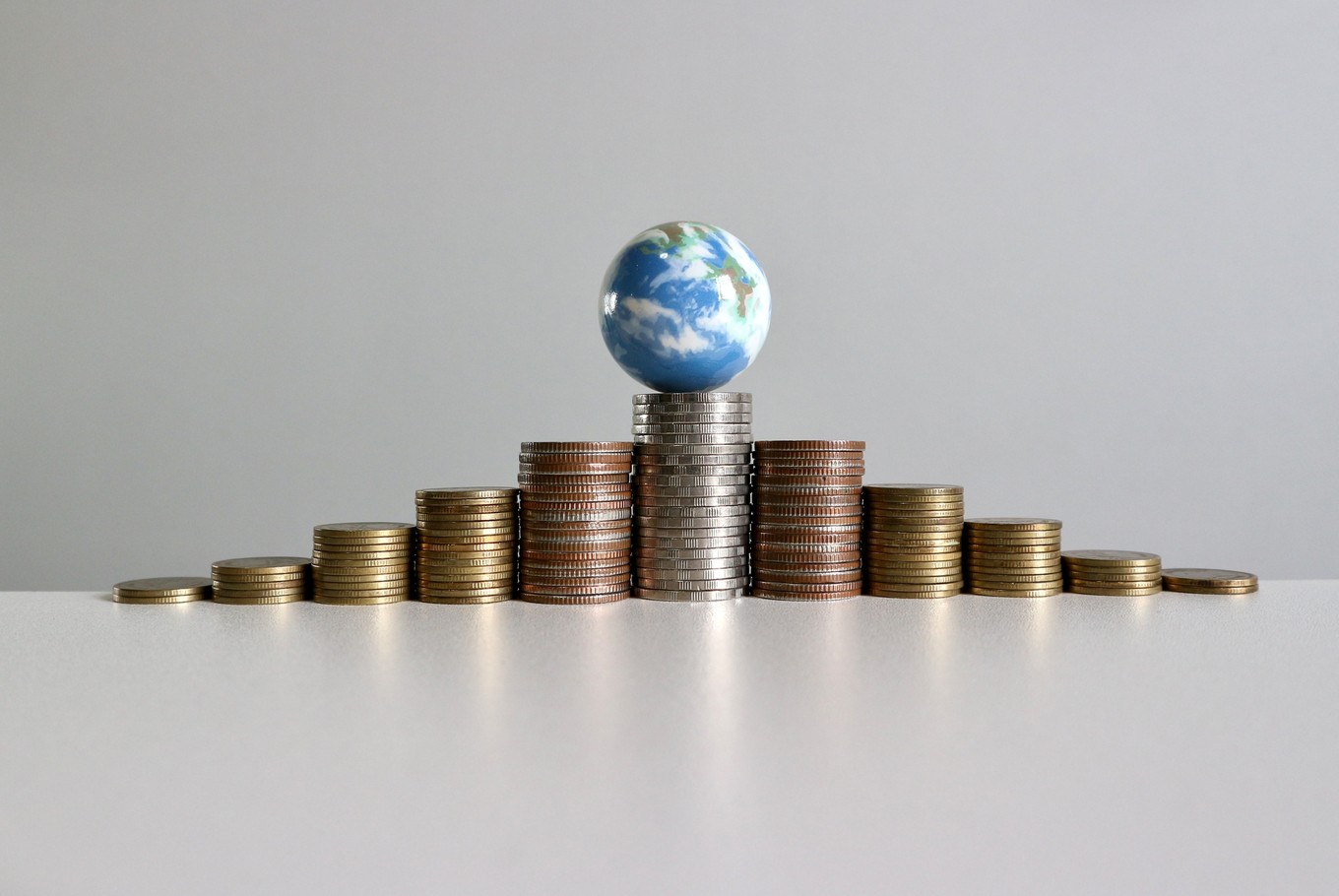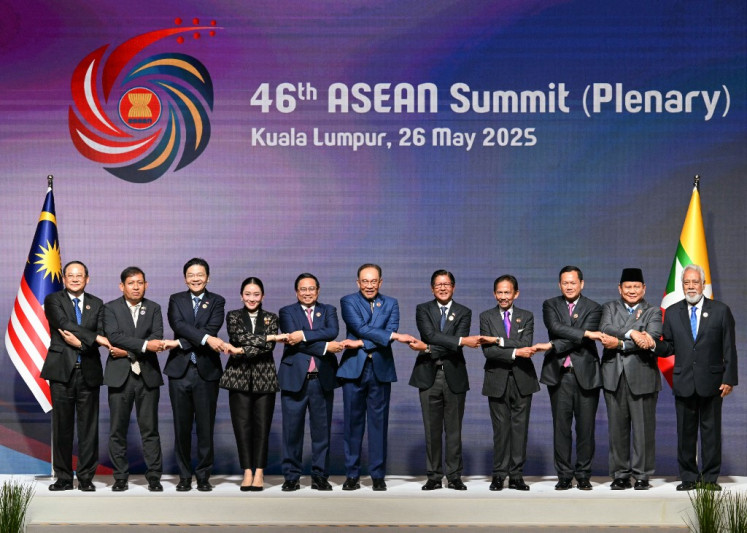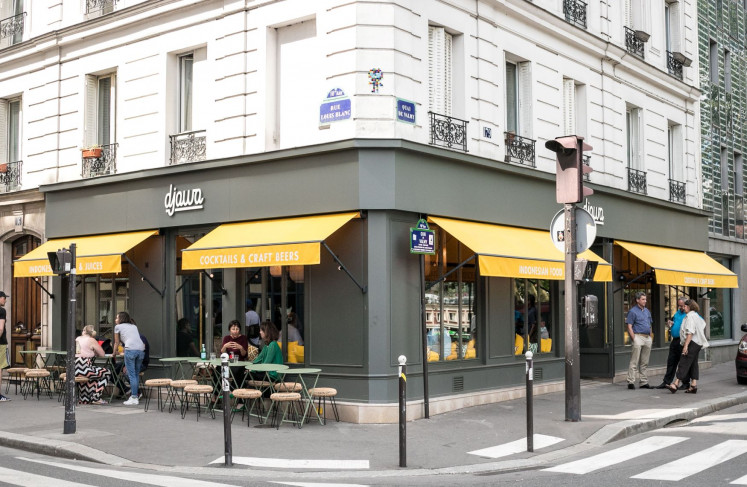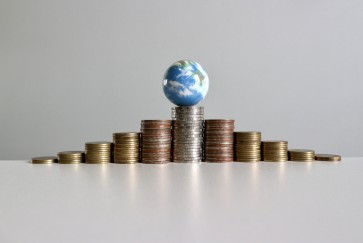Why we remain positive on Indonesia's economy
We expect the global economy to be stronger for longer, which should be conducive to the external environment helping sustain Indonesia’s export momentum.
Change text size
Gift Premium Articles
to Anyone
 We expect the global economy to be stronger for longer, which should be conducive to the external environment helping sustain Indonesia’s export momentum. (Shutterstock/File)
We expect the global economy to be stronger for longer, which should be conducive to the external environment helping sustain Indonesia’s export momentum. (Shutterstock/File)
T
he United States’ long yields have been rising as markets begin to anticipate four rate hikes by the Federal Reserve this year. Correspondingly, Indonesia has seen its 10year bond yields increase as foreign bondholders have sold off, and as the rupiah has underperformed in the region on a yearto-date basis, alongside the rupee and the Filipino peso. These recent developments have raised the question of how exposed Indonesia is to a repeat of 2013 taper tantrums.
Overall, we have a constructive outlook on ASEAN, and are most positive on Indonesia. We believe a repeat of the 2013 taper tantrum is unlikely. Should there be an accelerated and sustained rise in US 10-year yields, we believe Indonesia would be relatively more exposed to volatility than the other ASEAN economies. That said, we think Indonesia’s improved macro fundamentals indicate that its economy is better positioned to weather Fed normalization today than it was in 2013. We think a disruptive tightening in domestic liquidity that leads to an abrupt domestic demand slowdown is unlikely.
Indonesia’s external funding gap has declined, with the current account deficit narrowing from the 3 to 4 percent of gross domestic product (GDP) territory in 2013 to 1.7 percent in 2017. In addition, inflation has moderated significantly, and Indonesia now sees much higher real rate differentials versus the US, which helps to provide protection against capital volatility. Indonesia’s foreign reserve ammunition has also improved, as policymakers have made use of previous capital inflows to accumulate foreign reserves.
Our view has been that Indonesia’s recovery post-2013 taper tantrums will take place in a few phases. The first phase, which involved restoring macro stability, is already behind us. We believe we are now into the second phase of restoring growth.
We think a gradual growth recovery in 2018 and 2019 remains on track. We expect the global economy to be stronger for longer, which should be conducive to the external environment helping sustain Indonesia’s export momentum. Moreover, we expect the export recovery to broaden to a domestic demand recovery in 2018. Higher exports would improve the capacity utilization rate, incentivizing more capital expenditures. That would then generate employment opportunities, which would inspire better consumption, in our view.
As it is, the private sector capital expenditure recovery already appears under way. While export recoveries in Korea and Taiwan have been broadly recognized, what has been discussed less is that Indonesia’s export growth momentum in 2017 was among the strongest in the region. Much of Indonesia’s export momentum is driven by commodities rather than non-commodities, due to its status as a commodity exporter, but even so, this export recovery has already led to a pickup in nonconstruction capex.
On the non-commodities front, there have been concerns that excess capacity could hinder a capex recovery in the private sector. In the manufacturing space, segments such as autos, iron and steel, and cement have relatively low capacity utilization. However, this is not the case for the economy as a whole. In fact, the capacity utilization rate has generally been on an uptrend over the past few years, suggesting that capex momentum has not kept pace with production.
















